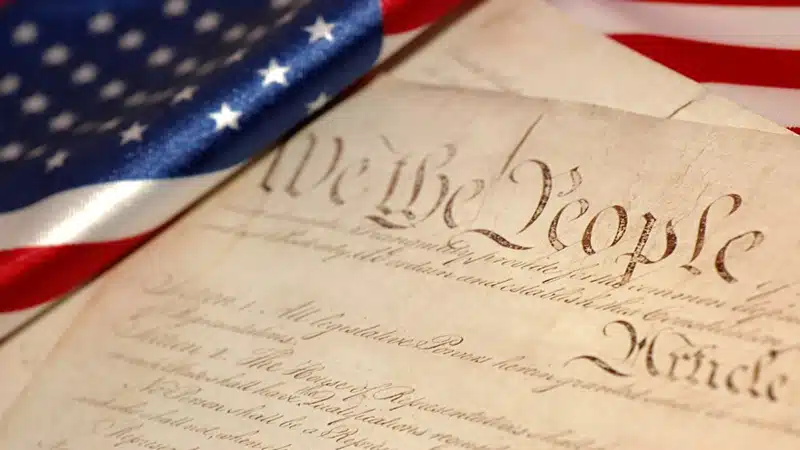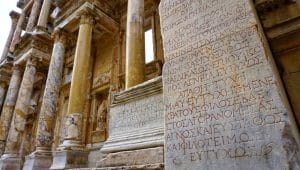National History Day
National History Day (NHD) is a dynamic, year-long educational program that engages students in exploring and interpreting historical topics. Celebrating its 50th anniversary in 2024, NHD has established itself as a cornerstone in historical education, offering middle to high school students an opportunity to delve deep into history.
Through NHD, students enhance their understanding of historical issues and processes and develop critical research, analysis, and presentation skills. This program culminates annually in local, regional, and national contests, where students present their findings in various formats, from traditional papers to multimedia presentations.
What is National History Day?
National History Day is an esteemed non-profit educational program headquartered in College Park, Maryland, which annually engages over half a million students globally. Since its inception in 1974, NHD has significantly enhanced history education, encouraging students to conduct original research on historical topics that intrigue them.
This initiative extends beyond just a contest; it is a comprehensive academic experience where students can submit projects at local and affiliate levels, with top participants advancing to the prestigious National Contest at the University of Maryland.
NHD’s commitment to improving historical education is evident in its provision of professional development opportunities and curriculum materials for educators, making it a pivotal element in contemporary educational landscapes.
How is the 2024 Theme Defined?
The National History Day 2024 theme is “Turning Points in History,” a concept that opens up a vast spectrum of exploration for participants. This theme encourages students to investigate events, ideas, or actions that have been pivotal moments in history, leading to significant changes.
The broad and inclusive theme invites students to contemplate the various dimensions of historical turning points – from individual decisions to mass movements. It’s a theme that resonates with the 50th anniversary of NHD, emphasizing how turning points can shape the future while being anchored in the past.
The 2024 theme invites students to analyze these pivotal moments in various contexts, including military, political, and legal history and areas like innovation, health, and environmental changes. This exploration is not just about recognizing these moments but understanding their far-reaching consequences and the multi-faceted impacts they have had on societies and the world at large
What Are the Categories in the NHD Contest? H2
National History Day offers various project categories, allowing students to showcase their historical research and creativity in various formats. These categories cater to different skills and interests, allowing students to express their historical understanding uniquely and engagingly.
Different Project Categories
The National History Day contest offers students the opportunity to explore history through various project categories:
- Documentaries: This category allows students to create documentaries that present their historical research in a visually and audibly engaging format.
- Exhibits: Students design and construct physical or digital exhibits to display their historical analysis.
- Papers: This traditional category involves a research paper that analyzes a historical topic in-depth.
- Performances: Students can create and perform a dramatic portrayal of their historical topic.
- Websites: This category allows students to design interactive and informative websites based on their historical research.
Guidelines and Resources for Each Category
On National History Day, each project category has specific guidelines to ensure fairness and consistency in the competition.
- Documentaries
- Length and Format: Documentaries should be at most 10 minutes in length. Students must operate all equipment and carry out all editing themselves.
- Script and Visuals: A well-researched script and effective use of visuals are crucial. Documentaries should balance content with engaging storytelling.
- Technical Quality: While technical quality is important, emphasis is placed more on the historical quality and interpretation of the topic.
- Exhibits
- Size and Design: Exhibits have specific size requirements and should be designed for easy viewing and understanding.
- Use of Primary Sources: Exhibits should effectively incorporate primary sources and artifacts to illustrate the historical narrative.
- Creativity and Clarity: Creative design and clear presentation of information are key to making exhibits stand out.
- Papers
- Word Limit: Papers should be 1,500 and 2,500 words, focusing on concise, well-argued analysis.
- Research and Footnotes: Extensive research and proper citation of sources using the Chicago or MLA style are essential.
- Structure and Argument: Papers should have a clear structure, with a strong thesis and logical progression of arguments.
- Performances
- Time Limit: Performances should not exceed 10 minutes. This includes setup and breakdown.
- Script and Acting: The script should be historically accurate, and the acting should bring the history to life engagingly.
- Stagecraft: Effective use of props, costumes, and stage presence are important, though the focus remains on historical content.
- Websites
- Content Limit: Websites should have no more than 1,200 student-composed words. Multimedia elements do not count towards this limit.
- Design and Navigation: The website should be user-friendly, with a clear layout and easy navigation.
- Interactivity and Sources: Interactive elements and effective use of digital primary sources can enhance the website’s educational value.
Expert Advice and Support for Participants
National History Day provides participants expert advice and support to guide them through the project creation process.
- Historical Research and Analysis: Experts in history and education provide insights into conducting effective research and analyzing historical data.
- Project Development: Guidance on developing a project that aligns with the theme and category rules, including tips on writing, design, and technical aspects.
- Feedback and Revision: Participants can receive feedback from teachers and NHD coordinators, allowing them to refine their projects for competition.
The resources and guidelines provided by National History Day ensure that students are well-prepared to create insightful and impactful projects, regardless of the chosen category.
Where Can Students Find Research Resources?
In preparing for National History Day, students have access to a wealth of research resources that can greatly enhance the depth and quality of their historical projects. Effective research is a cornerstone of success in National History Day, and knowing where to find reliable and relevant information is crucial.
Students are encouraged to explore various sources, including local and online resources, to gather comprehensive information and diverse perspectives on their chosen topics. These resources provide factual information and help students develop a more nuanced understanding of historical events and themes.
Libraries and Historical Societies
Libraries and historical societies are invaluable resources for National History Day participants. Public and school libraries often house a vast collection of books, periodicals, and archival materials that provide detailed insights into historical events and figures.
Many libraries also offer access to specialized databases and digital resources that students might need help finding elsewhere. Historical societies, often focused on specific regions or themes, are treasure troves of primary sources, including documents, photographs, and personal narratives that bring history to life.
Visiting these institutions can also allow students to interact with librarians and historians who can offer guidance and suggestions for further research.
Online Primary Source Collections
The internet is a rich resource for students participating in National History Day, offering access to many online primary source collections. These digital archives include documents, letters, photographs, and audio-visual materials that provide firsthand accounts of historical events.
Websites like the Library of Congress, National Archives, and various university digital libraries offer extensive collections that can be accessed remotely, making them a convenient resource for students. These online platforms often have curated collections related to specific themes or historical events, making it easier for students to find relevant project materials.
Guidance on Using Resources Effectively
Effectively utilizing research resources is a critical skill for students on National History Day. Students should start by clearly defining their research questions and objectives, which will guide their search for information.
It’s important to evaluate sources for credibility and relevance, distinguishing between primary and secondary sources and understanding their respective roles in historical research. Students should also learn to take effective notes and organize their findings systematically.
Learning citation formats and how to create bibliographies is essential to acknowledge sources and avoid plagiarism. Teachers and librarians can provide valuable guidance in this process, helping students develop strong research skills that will benefit their projects and future academic endeavors.
How Does NHD Benefit Students and Educators?
National History Day (NHD) offers a unique educational experience that benefits both students and educators by enhancing historical knowledge, promoting creative expression, and providing opportunities for professional development.
Enhancing Historical Knowledge and Research Skills
National History Day profoundly impacts students’ academic skills, especially in historical knowledge and research. Students become deeply involved in historical inquiry and analysis by participating in NHD.
They learn to become historians, engaging in primary and secondary research typically reserved for higher education. This process improves their critical thinking, writing, and research skills, preparing them for college and career challenges.
An independent study has shown that NHD participants outperform non-NHD peers in standardized tests across various subjects, including social studies, science, and math. Delving into history helps students understand complex global issues, fostering informed, empathetic citizens ready to tackle future challenges.
Opportunities for Creative Expression
NHD offers a platform for creative expression that goes beyond traditional classroom learning. Students can choose from various project formats – including documentaries, exhibits, papers, performances, and websites – allowing them to explore history that aligns with their interests and strengths.
This multifaceted approach enables students to become writers, filmmakers, web designers, playwrights, and exhibit developers, creating contemporary expressions of history. Such opportunities enhance students’ interest in academic subjects and boost their confidence and engagement in learning. Through NHD, students often discover new passions and talents, leading to increased interest in history and other academic subjects.
Professional Development for Educators
For educators, National History Day provides significant professional development opportunities. By integrating NHD into their curriculum, teachers can enhance their instructional skills, particularly in teaching research, critical analysis, and historical thinking.
NHD’s various teacher resources, including classroom tools, courses, and institutes, offer educators innovative ways to engage students in history learning. These resources help teachers to scaffold the research process, provide effective feedback, and manage student projects across multiple categories.
Educators involved in NHD often find that the program enhances their teaching practices, helping them better support their students’ academic and creative pursuits. This symbiotic relationship between NHD and classroom instruction not only elevates the quality of history education but also contributes to a more informed and engaged student body
What are the Steps to Participate in NHD?
Participating in National History Day (NHD) involves well-defined steps that guide students from the initial registration phase to the final stage of presenting their projects.
This process is designed to help students fully engage with their historical research and project development, allowing them to effectively showcase their understanding and creativity.
Registration and Contest Entry Process
Participation in National History Day begins with a structured registration and contest entry process, which includes several key steps:
- Understanding the Theme and Choosing a Category:
- Every year, NHD announces a specific theme that guides the research and projects. Students must understand this theme to select a topic that aligns well.
- NHD offers various project categories, including documentaries, exhibits, papers, performances, and websites. Students should choose a category that best suits their interests and skills.
- Making this decision involves considering factors like personal strengths, available resources, and the nature of the chosen topic.
- Registration at the Appropriate Level:
- Students begin their NHD journey by registering for the contest at the local level. This might be through their school, whether public, private, parochial, charter, or homeschool.
- Registration usually involves filling out necessary forms and providing details about the project and the participants.
- It’s important to adhere to all deadlines and requirements specified by NHD or the local affiliate to ensure successful registration.
- Adherence to NHD Rules and Guidelines:
- NHD provides a comprehensive rule book outlining project creation and presentation guidelines. Students must familiarize themselves with these rules before starting their projects.
- The rules cover various aspects of the project, including size limitations, time constraints, and permissible materials and formats.
- Understanding and following these rules is crucial for eligibility and success in the competition.
Selecting and Researching a Topic
Once registered, students must select a topic that aligns with the annual theme and begin their research. This process involves:
- Identifying a subject within the broad theme that sparks their interest.
- Conducting preliminary research to understand the topic’s significance and historical context.
- Gathering primary and secondary sources to develop a comprehensive view of the topic.
Submitting and Presenting Projects
The final stages of NHD participation involve the submission and presentation of projects:
- After completing their research and creating their projects, students must prepare them for submission according to NHD guidelines.
- Projects are initially presented at the local level, with the potential to advance to regional, state, and national levels.
- At each level, projects are evaluated by judges, and feedback is provided. Students are encouraged to use this feedback to refine their projects for subsequent stages of the competition.
Participating in National History Day is a multifaceted process that offers students a chance to deeply engage with history, develop critical skills, and express their understanding creatively. From the initial registration and topic selection to the final stages of project submission and presentation, each phase of NHD participation contributes to a rich educational experience.
How Can Teachers Integrate NHD in the Classroom?
Integrating National History Day (NHD) into classroom instruction offers educators a dynamic way to enhance their teaching of history and related subjects. NHD aligns with educational standards and provides a structured framework for teachers to develop students’ research, critical thinking, and communication skills.
Integrating NHD into the curriculum involves creating lesson plans incorporating NHD themes, employing effective teaching strategies for historical research, and developing methods for assessing student projects.
Curriculum Integration and Lesson Plans
Integrating National History Day into the curriculum requires thoughtful planning and the development of lesson plans that tie in the NHD theme with the standard curriculum. Teachers can start by identifying connections between the NHD theme and the topics covered in their history, social studies, English, or science syllabi. Developing lesson plans around these connections helps students see the relevance of their NHD projects to their broader educational goals.
For example, a teacher can align a unit on civil rights with the NHD theme, allowing students to explore various aspects of this topic through their NHD projects. This integration enriches the curriculum and provides a meaningful context for students’ NHD work, ensuring that their projects are more than extracurricular activities.
Teaching Strategies for Historical Research
Teachers are crucial in guiding students through the historical research process for their NHD projects. This involves teaching students how to identify and access both primary and secondary sources, evaluate the credibility of their sources, and synthesize their findings into a coherent historical narrative.
Educators can employ various strategies, such as organizing research workshops, providing templates for source analysis, and facilitating group discussions on different historical perspectives. By teaching these research skills, educators help students develop a deeper understanding of historical inquiry and equip them with the tools necessary for effective historical research. This not only aids their NHD projects but also prepares them for advanced academic work.
Assessing Student Projects in NHD
Assessing student projects in National History Day presents an opportunity for educators to evaluate not just the final product but also the research process and the development of students’ critical thinking and presentation skills. Teachers can use rubrics that align with NHD’s judging criteria, focusing on historical quality, presentation clarity, and theme adherence.
Assessment should also consider the student’s ability to formulate and defend a historical argument, the use of primary and secondary sources, and the overall coherence and creativity of the project.
Providing constructive feedback throughout the project’s development is crucial, as it guides students in refining their work and deepening their historical understanding. This formative approach to assessment helps students recognize their strengths and areas for improvement, making the NHD project a valuable learning experience.
What Impact Has NHD Had on Historical Education?
National History Day (NHD) has significantly influenced historical education by transforming how students learn about and engage with history. Over the years, NHD has revitalized history teaching in classrooms and contributed to developing key skills among students.
Its impact is evident in participants’ enhanced historical literacy, critical thinking skills, and broader contributions to history education.
Historical Literacy and Critical Thinking Skills
One of the most notable impacts of National History Day is its enhancement of historical literacy and critical thinking skills among students. Through NHD, students are not merely passive recipients of historical information; they become active researchers, delving into primary and secondary sources to understand historical events and contexts.
This process of investigation and analysis fosters a deeper understanding of history, allowing students to evaluate historical narratives and develop their own interpretations critically. By engaging in this rigorous process, students enhance their ability to think critically and analytically, which is essential in historical study, all academic disciplines, and real-world problem-solving scenarios.
The emphasis on primary source research and developing a historical argument equips students with the tools to discern and evaluate information critically, an increasingly important skill in the digital age.
NHD’s Contribution to History Education
National History Day has substantially contributed to history education by providing a unique, project-based learning approach that complements traditional classroom instruction. NHD projects encourage a more in-depth and student-centered exploration of historical topics, fostering a sense of inquiry and discovery among students.
This approach has been shown to improve academic performance across various subjects, not just history. Moreover, NHD’s emphasis on a yearly theme encourages the exploration of diverse historical topics, thereby broadening students’ historical knowledge and understanding.
The program also provides valuable professional development opportunities for teachers, offering them new tools and methods to make history more engaging and relevant to students. As a result, NHD has played a pivotal role in stimulating history education, making it more dynamic, interactive, and impactful for students and educators.
How is NHD Organized and Funded?
National History Day (NHD) is a significant educational program with a complex structure and diverse funding sources. Understanding the organization and funding of NHD helps in appreciating the scale and impact of this program in promoting historical education.
Structure and Organization of NHD
National History Day functions with a well-defined organizational structure ensuring smooth operation and broad reach. At its core, NHD is headquartered in College Park, Maryland, where it coordinates the overall program and sets the annual theme.
The structure of NHD extends nationally and internationally through a network of affiliates. These affiliates include state coordinators who organize the local and state-level contests leading up to the national competition.
The program caters to students from grades 6 through 12, divided into junior and senior divisions to ensure age-appropriate competition. The organization of NHD is designed to facilitate the participation of a large number of students and to provide educational resources and support at various levels – from local schools to the national stage.
Key Partners and Sponsors
Various partners and sponsors support National History Day’s operation, including educational institutions, private foundations, government agencies, and corporate sponsors. These partnerships are crucial for funding the many aspects of the program, from the national contest to teacher training workshops.
Major sponsors and partners often include the National Endowment for the Humanities, the National Park Service, and various educational foundations. These sponsors provide financial support and contribute educational resources, expertise, and additional opportunities for students and teachers involved in NHD. The involvement of these partners reflects the broad support for historical education and the recognition of the value that NHD brings to this field.
Volunteer and Judging Opportunities
A vital component of National History Day is the involvement of volunteers and judges who contribute significantly to the success of the contests at various levels. Volunteers play numerous roles, including organizing local events, guiding students, and assisting in the program’s logistics.
Judging NHD projects is critical, requiring knowledgeable individuals to evaluate student projects’ historical quality and presentation. Judges typically include historians, educators, and professionals with expertise in history or related fields.
Their feedback not only determines the advancement of projects through the competition levels but also provides valuable insights to help students improve their work. Volunteering as a judge or in other capacities for NHD allows individuals to support historical education and engage with enthusiastic students passionate about their historical research.
What are the Future Prospects of NHD?
As National History Day (NHD) continues to grow and evolve, its future prospects are promising and exciting. NHD will expand its reach and impact in several key areas: evolving themes and educational focus, expanding global participation, and leveraging technological advancements for digital projects. These developments will enhance the program’s appeal and effectiveness and ensure that it remains a significant and dynamic contributor to historical education.
Evolving Themes and Educational Focus
Looking ahead, National History Day is poised to refresh and evolve its themes and educational focus continually. Each year, NHD selects a new theme that challenges students to think critically about historical and contemporary issues. These themes are carefully chosen to encourage in-depth research, relevance to current events, and connections across different historical periods and locations.
As the program moves forward, we can expect themes that resonate with current global challenges and inspire students to consider the implications of history on the future. This evolving thematic approach keeps the program fresh and relevant, engaging students in meaningful and timely historical inquiry.
Expanding Global Participation
Another exciting prospect for National History Day is expanding its global participation. While NHD already has a significant international presence, there is a vast potential for further growth. By increasing its outreach and resources, NHD can engage more students from diverse backgrounds and countries, enriching the program with broader perspectives and historical narratives.
This expansion benefits the students who gain an invaluable educational experience and contributes to the global understanding and appreciation of history. As NHD extends its reach, it fosters a more inclusive and comprehensive exploration of history, encouraging students worldwide to become informed and thoughtful global citizens.
Technological Advancements and Digital Projects
The future of National History Day will undoubtedly be shaped by technological advancements, particularly in digital projects. As digital literacy becomes increasingly important, NHD can incorporate more technology-focused categories and resources.
This could include virtual reality experiences, digital archives, and interactive web-based projects that allow students to explore history innovatively. By embracing these technological tools, NHD can provide students with modern skills and new historical research and presentation methods. This digital evolution will enhance participants’ educational experience and ensure that NHD remains at the forefront of contemporary educational methodologies.
The future of National History Day looks bright with evolving educational themes, expanding global participation, and the incorporation of advanced technology. These developments will ensure that NHD remains a vital and progressive force in historical education, engaging students in meaningful exploration of the past and its relevance to the present and future.
Conclusion: Embracing the Past to Enlighten the Future
National History Day is a monumental program in the educational landscape, offering students and educators a profound avenue to explore, understand, and appreciate history. From enhancing historical literacy and critical thinking skills to providing a platform for creative expression and professional development, NHD has left an indelible mark on historical education. Its well-structured organization, supported by dedicated sponsors and volunteers, ensures its continued success and growth.
As we look towards the future, NHD’s evolving themes, expanding global reach, and integration of technological advancements promise to keep this program at the forefront of educational innovation. For students, NHD is a journey into the depths of history, unearthing lessons and insights that resonate well beyond the classroom. For educators, it presents an invaluable tool to ignite a passion for history among students, fostering a deeper understanding of our world.
Incorporating National History Day into educational curricula and extracurricular activities is a commitment to nurturing informed, thoughtful, and engaged citizens. As we reflect on the past and anticipate the future, National History Day stands as a testament to history’s enduring power and relevance in shaping our world and our understanding of it.













































